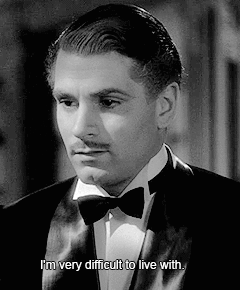What do you think?
Rate this book


449 pages, ebook
First published August 1, 1938





We can never go back again, that much is certain. The past is still close to us. The things we have tried to forget and put behind us would stir again, and that sense of fear, of furtive unrest, struggling at length to blind unreasoning panic - now mercifully stilled, thank God - might in some manner unforeseen become a living companion as it had before.The narrator, a young and painfully self-conscious girl, is a paid companion to Mrs. Van Hopper, a snobbish social climber. While they are in Monte Carlo, Mrs. Van Hopper bulldozes her way into an acquaintance with a quiet widower, Maxim de Winter. Despite our heroine's lack of status and social graces, Maxim begins spending time with her and soon asks her to marry him.





Yes, there it was, the Manderley I had expected, the Manderley of my picture postcard long ago. A thing of grace and beauty, exquisite and faultless, lovelier even than I had ever dreamed, built in its hollow of smooth grassland and mossy lawns, the terraces sloping to the gardens, and the gardens to the sea.
Later her friends would come in for a drink, which I must mix for them, hating my task, shy and ill-at-ease in my corner hemmed in by their parrot chatter, and I would be a whipping-boy again, blushing for her when, excited by her little crowd, she must sit up in bed and talk too loudly, laugh too long, reach to the portable gramophone and start a record, shrugging her large shoulders to the tune.
This sudden talk of marriage bewildered me, even shocked me I think. It was as though the King asked one. It did not ring true. And he went on eating his marmalade as though everything were natural. In books men knelt to women, and it would be moonlight. Not at breakfast, not like this.
She stared at me curiously. Her voice dropped to a whisper. “Sometimes, when I walk along the corridor here, I fancy I hear her just behind me. That quick, light footstep. I could not mistake it anywhere. And in the minstrels’ gallery above the hall. I’ve seen her leaning there, in the evenings in the old days, looking down at the hall below and calling to the dogs. I can fancy her there now from time to time. It’s almost as though I catch the sound of her dress sweeping the stairs as she comes down to dinner.” She paused. She went on looking at me, watching my eyes. “Do you think she can see us, talking to one another now?” she said slowly. “Do you think the dead come back and watch the living?”


